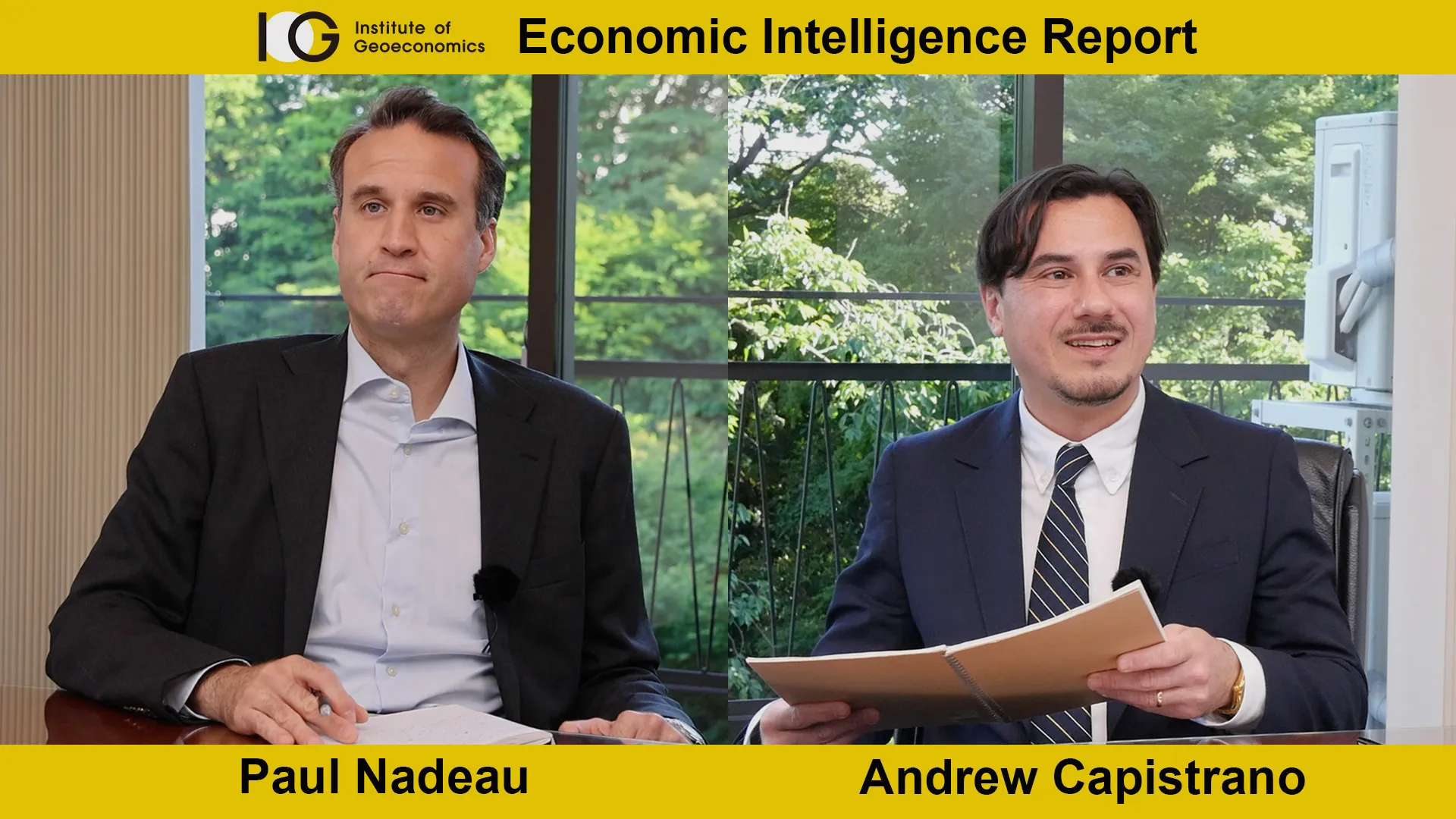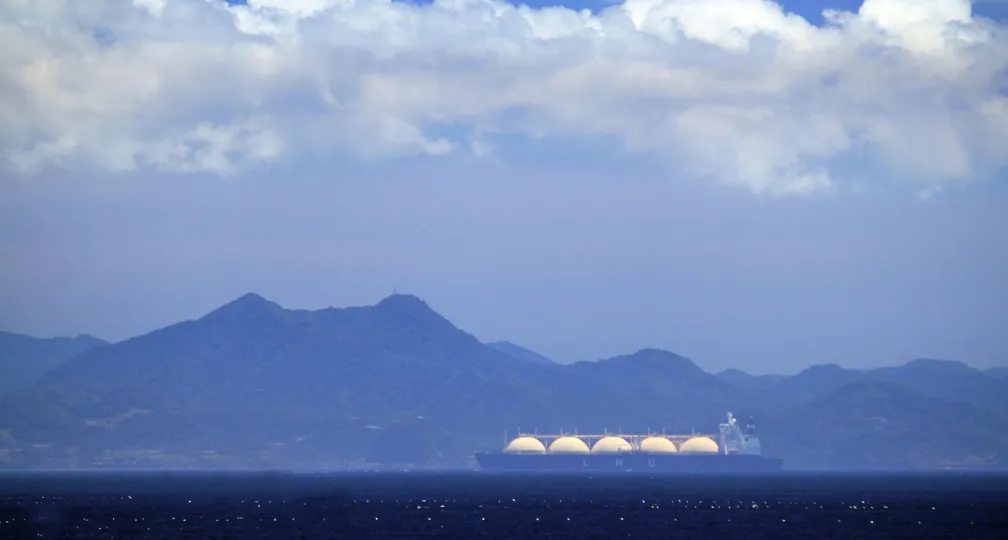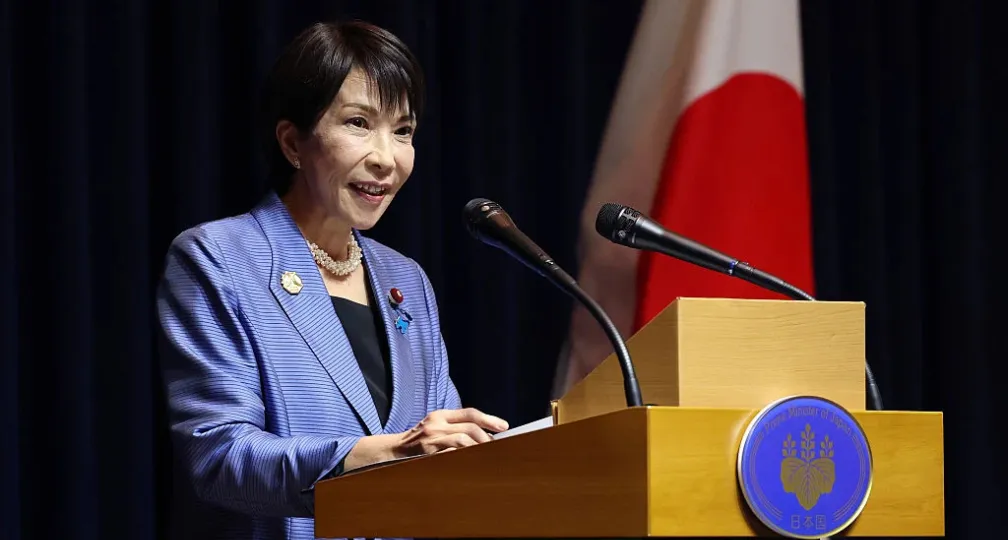IOG Economic Intelligence Report (Vol. 2 No. 1)

The latest regulatory developments on economic security & geoeconomics
Summiteering: Japan’s Prime Minister Kishida Fumio and U.S. President Joe Biden met in Washington, DC on January 13. Their joint statement covered the most of the ground in the U.S.-Japan relationship, but regarding economics, the statement reaffirmed their “economic leadership” and looking forward to “advancing domestic and global prosperity and upholding a free, fair and rules-based economic order” through Japan’s presidency of the G7 and U.S. hosting of APEC this year. The statement described their commitment to economic security “protection and promotion of critical and emerging technologies”, including semiconductors, through the Economic Policy Consultative Committee. Additional language covering building resilient supply chains “against threats such as economic coercion, non-market policies and practices and natural disasters”, accelerating efforts to confront climate change, and advancing the concept of “data free flow with trust,” all centered around the U.S.-initiated Indo-Pacific Economic Framework.
Collaboration on Advanced Semiconductors: During a meeting in Washington, DC on January 5, Nishimura Yasutoshi, Japan’s Minister of Economy, Trade, and Industry met with Gina Raimondo, U.S. Secretary of Commerce, to discuss Japan-U.S. bilateral collaboration on advanced semiconductors. Nishimura and Raimondo were joined by senior officials from Japanese firm Rapidus and U.S. firm IBM, who in December had announced a joint partnership to develop advanced chips.
Tackling Forced Labor in Supply Chains: Nishimura and U.S. Trade Representative Katherine Tai completed a memorandum of cooperation to establish a task force to address forced labor concerns in supply chains through exchanging information and sharing best practices. The U.S. side will include members from the departments of Commerce, Labor, and Homeland Security, as well as the Office of the U.S. Trade Representative (USTR) and the U.S. Agency for International Development (USAID).
Onto Investment Screening: Investment screening seems likely to be an agenda item for U.S. relations with China in 2023. PoliticoPro reports that the omnibus spending package passed in December includes language urging the Biden administration to increase oversight of U.S. investments in China. The language, included by Democrat Rosa DeLauro, Chair of the House Appropriations Committee (now Ranking Member in the current Congress), called for the Treasury and Commerce Departments to issue reports describing their efforts to design a program to screen U.S. investments in “China and other adversarial nations” in sectors critical for national security like semiconductors, biotech, and clean energy. Other reports suggest that an executive order to create new federal authority to regulate investments in China is coming “soon.”
Canada & Mexico Score a ROO Win: Canada and Mexico have reportedly won a ruling against the United States under the 2020 U.S.-Canada-Mexico Free Trade Agreement (USMCA) on rules of origin. The dispute is over the three countries’ differences in calculating the percentage of a vehicle that comes from one of the given countries. A practical result of this ruling is that it may become more affordable to manufacture automobiles in Canada and Mexico. The Office of the U.S. Trade Representative has not yet issued a response, but observers are waiting to see whether the United States complies with the ruling.
From IPEF to APEP: U.S. Secretary of State for Western Hemisphere Affairs Brian Nichols said that the Biden administration would soon announce details of an American Partnership for Economic Prosperity as a Western Hemispheric companion to the Indo-Pacific Economic Framework that was announced last year.
Resolving the EV Tensions: The U.S. Treasury Department described how it would implement electric vehicle subsidies under the Inflation Reduction Act. The subsidies have been criticized by the European Union, Japan, and others for unfairly subsidizing U.S. automakers, to which end the Treasury Department said it would accept a broad definition of the legislative language to allow more automakers to access the subsidies. Some members of Congress have expressed displeasure with the guidance, suggesting that the tensions will remain unresolved.
Analysis: Japan’s National Security Strategy in the Geoeconomic Context
Japan’s new National Security Strategy doesn’t point to the fraying of the global order, but an attempt to maintain it. The document (English translation) opens by recognizing the challenge to the “free, open, and stable international order” from “historical changes in power balances and intensifying geopolitical competition.” For students of international relations, language like this seems to describe a systemic challenge to the international order, something that could overturn the norms and institutions that have governed how states have interacted since the end of World War II, as opposed to strategic challenges which concern the ways in which a state uses its resources to achieve concrete aims. It’s important to distinguish between systemic challenges and strategic challenges because the tools necessary to respond are different for each – and while the ambitions described in Japan’s national security strategy are clearly strategic, the goal is the preservation of the rules-based system of governance.
Japan’s announced investments in defense spending and possible counterstrike abilities are best understood at the level of strategy because their hope is to raise the costs of the potential use of force in the region. This reflects the military challenge from China, which is primarily strategic since its efforts are focused on gaining power through the displacement of that of the United States and its allies and potentially the use of coercive steps to absorb Taiwan into the People’s Republic. While the use of force against Taiwan would be a crisis and a tragedy at least at the level of that in Ukraine, it would not necessarily be challenge to the international system or an unprecedented violation of the rules-based order. The norm of invading sovereign territory and unilateral changes to the status quo by force were already violated repeatedly, such as through Russia’s earlier invasion of Georgia and, yes, the U.S. invasion of Iraq (inconsistency in preserving norms is a threat to their legitimacy). Short of great power war, single violations of these norms rarely amount to systemic threats on their own.
On the other hand, China’s economic challenge, presented by its state-capitalist economic model and sheer size, is systemic and will affect how states interact and achieve economic security all over the world. The current international system, alternatively described as liberal, rules-based, open, and so on, sets the terms for how states, from hegemons to microstates, are supposed to interact. The goal behind the establishment of the current international order was a holistic system meant to shape direct and indirect effects beyond just the aggregate of success or failure on particular disputes. It builds a context or environment to shape how strategic actions take place. What’s been often forgotten is that the whole concept rested on the idea that economic welfare is a security issue and that open economic systems governed by rules rather than coercion provide the best opportunities for welfare gains and greater security by extension. To that end, linking countries together economically and conditioning their involvement on a set of formal and informal rules would align interests to gain access to the benefits of the order, as well as incurring costs for defecting from that order.
If the challenge posed by China is systemic, then preserving the system needs to go beyond military deterrence to holistic measures which encompass economic governance, support for international institutions, and general maintenance of the rules that govern the system. That in turn means investing in international institutions, supporting governance processes, and promoting (and adhering to) rules and norms. To that end, Japan’s resuscitation of the Trans-Pacific Partnership, participation in RCEP, and overall participation in the various regional and global forums are already significant steps towards maintaining the rules-based system of economic governance by trying to shape China’s incentives. While the national security documents may represent a milestone in the evolution of Japan’s national security policy, how Japan uses forums like its presidency of the G7 will ultimately do more to support the international system.
The linking of economics and security isn’t new in Japanese strategy. In the 1970s, Japan’s security was understood to be “comprehensive” in terms of incorporating economic, food, and energy security. But there has also been an evolution: Pomona College’s Tom Le points out, Kishida’s willingness to even discuss security spending reflects what he describes as the “securitization of the economy” whereby economic choices are increasingly bound to security concerns. The national strategy documents represent an elevation of the military within Japan’s statecraft, but do not completely displace the centrality of economics in Japan’s national strategy. By reiterating the importance of global integration and cooperation in its National Security Strategy, Japan is, at least superficially, figuring out how to reconcile economic security with economic interconnectedness.
Achieving this in practice will be a difficult balancing act and Japan does not have the geopolitical heft to solve these issues on its own – for that, it needs the commitment of the United States. Steering the United States away from its protectionist turn and ensuring its commitment to global governance may be as crucial for Japan as figuring out how to pay for its new defense posture.
Disclaimer: The views expressed in this IOG Economic Intelligence Report do not necessarily reflect those of the API, the Institute of Geoeconomics (IOG) or any other organizations to which the author belongs.
API/IOG English Newsletter
Edited by Paul Nadeau, the newsletter will monthly keep up to date on geoeconomic agenda, IOG Intelligencce report, geoeconomics briefings, IOG geoeconomic insights, new publications, events, research activities, media coverage, and more.


Visiting Research Fellow
Paul Nadeau is an adjunct assistant professor at Temple University's Japan campus, co-founder & editor of Tokyo Review, and an adjunct fellow with the Scholl Chair in International Business at the Center for Strategic and International Studies (CSIS). He was previously a private secretary with the Japanese Diet and as a member of the foreign affairs and trade staff of Senator Olympia Snowe. He holds a B.A. from the George Washington University, an M.A. in law and diplomacy from the Fletcher School at Tufts University, and a PhD from the University of Tokyo's Graduate School of Public Policy. His research focuses on the intersection of domestic and international politics, with specific focuses on political partisanship and international trade policy. His commentary has appeared on BBC News, New York Times, Nikkei Asian Review, Japan Times, and more.
View Profile-
 Japan’s Sea Lanes and U.S. LNG: Towards Diversification and Stabilization of the Maritime Transportation Routes2026.02.24
Japan’s Sea Lanes and U.S. LNG: Towards Diversification and Stabilization of the Maritime Transportation Routes2026.02.24 -
 Fed-Treasury Coordination as Economic Security Policy2026.02.13
Fed-Treasury Coordination as Economic Security Policy2026.02.13 -
 What Takaichi’s Snap Election Landslide Means for Japan’s Defense and Fiscal Policy2026.02.13
What Takaichi’s Snap Election Landslide Means for Japan’s Defense and Fiscal Policy2026.02.13 -
 Challenges for Japan During the U.S.-China ‘Truce’2026.02.12
Challenges for Japan During the U.S.-China ‘Truce’2026.02.12 -
 India and EU Sign Mother of All Deals2026.02.09
India and EU Sign Mother of All Deals2026.02.09
 Orbán in the Public Eye: Anti-Ukraine Argument for Delegitimising Brussels2026.02.04
Orbán in the Public Eye: Anti-Ukraine Argument for Delegitimising Brussels2026.02.04 Fed-Treasury Coordination as Economic Security Policy2026.02.13
Fed-Treasury Coordination as Economic Security Policy2026.02.13 When Is a Tariff Threat Not a Tariff Threat?2026.01.29
When Is a Tariff Threat Not a Tariff Threat?2026.01.29 Oil, Debt, and Dollars: The Geoeconomics of Venezuela2026.01.07
Oil, Debt, and Dollars: The Geoeconomics of Venezuela2026.01.07 India and EU Sign Mother of All Deals2026.02.09
India and EU Sign Mother of All Deals2026.02.09














